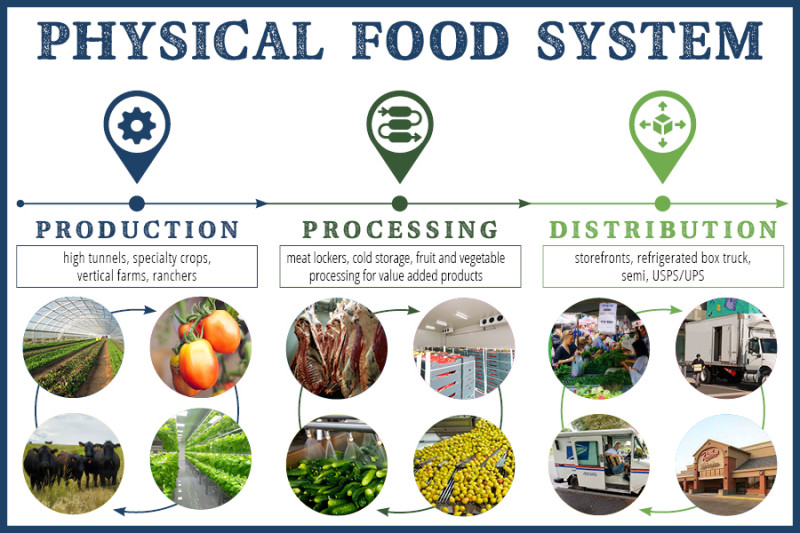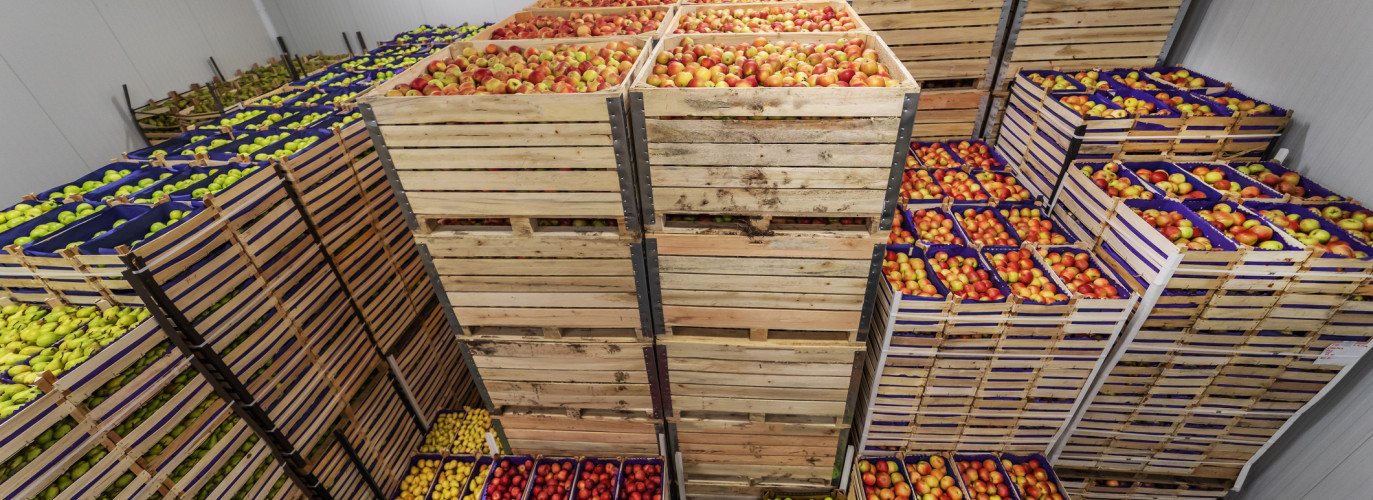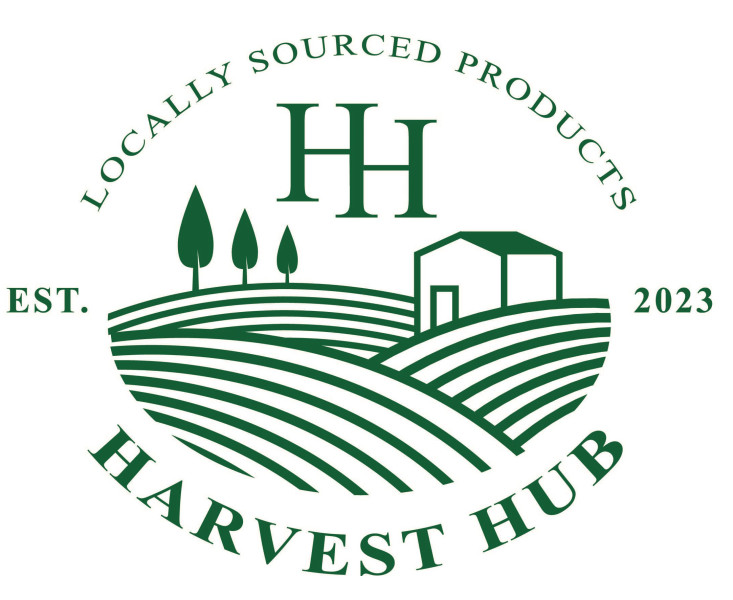
Jun 16, 2023

By Rick McNary
When the city and county leaders of Lyons in Rice County offered Shop Kansas Farms (SKF) their Celebration Centre for the first Market of Farms, I was delighted because it was about as smack-dab in the middle of Kansas as it could get. With my love for all things rural, it was the perfect place to host our first event which drew more than 1,400 shoppers to Lyons to purchase food directly from 42 of our Shop Kansas Farms sellers.
I asked Stacy Clark, the Rice County Economic Development Director, and the Lyons City Administrator, Chad Buckley, if they could gather a few people to hear my ideas of how to build a community around local food. They agreed, and we met in the Lyons City Hall.
I began to work them through the model for a practical, physical and local food system that includes all three components of a food system. There are three basic components of a food system:

Since the pandemic, SKF has served as a digital hub connecting all three of these components in a regional system. However, a close examination of current systems reveals that, for a regional food system to exist, some of the components (such as processing) are either missing or lacking capacity to accommodate the growing demand.
We began with a group of people sitting in a circle with a large paper pad on an easel and began identifying the local farms and ranches. The list was long! We then began to identify local processing facilities for either meat or produce and, as Stacy said, “It was crickets.”
We continued to meet monthly – sometimes more frequently – to walk through the model which has two basic components that run parallel like a railroad track: community engagement and business development.
Community engagement in local food systems
I walked alongside their community to help them identify their needs and opportunities. There is no one who knows the needs of a community better than the people who reside there, but sometimes it takes a seasoned facilitator with an understanding of how food systems work to help them discover adaptive solutions. It also takes time to create long-term impact, so we began to work through a process of creating a shared vision and establishing a strategic plan to unify the community around one of the most powerful common denominators in humanity – food. We’ve been at it over a year now and have had remarkable success with even more important things coming.
Business development in local food systems
We are helping them identify new revenue streams, entrepreneurial opportunities, increased margins and markets for local farms/ranches with direct-to-consumer sales. Consumers are often willing to pay more if they can “connect” with the farmer so the farmers doing the best marketing and building relationships with people are the ones who are successful.
The other part of our model focuses on expanding current businesses and creating new businesses. What we have discovered since the beginning of Shop Kansas Farms is there are tremendous business opportunities that exist both for traditional farms who grow commodities like wheat, corn, soy and livestock, as well as for urban and specialty crop growers who have found regional, and in some cases, national markets for their products.
While SKF has helped prosper existing farmers and ranchers, we’ve also helped food entrepreneurs find a market for their products and, as a result, grow their business.
Creating the Rice County Harvest Hub, Inc.

One of the benefits of this adaptive process is to watch people catch the vision and bring their skill sets to the table. While numerous people have been involved, there are a few whose leadership and engagement have driven the idea into reality:
- Stacy Clark, Rice County economic development director
- Chad Buckley, Lyons city administrator
- Karly Frederick, Rice County Community Foundation
- Joseph Kearns, Plum Hill Farm and grant writer extraordinaire
- Wendy Hughes, Rice County KSU extension
- Chad and Leanna Hook, Rice County Farm Bureau
- Alan Seimer, Bushton city council member
- Dr. Paula Boyea, local resident
- Doug Keesling, local farmer and USAID international food security advisor
- Lee and Susan Sankey, local agricultural leaders and specialists
Along the way, they wrote and secured a USDA grant for local food systems planning that has helped them form a nonprofit, 501(c)3, The Harvest Hub, Inc., and will provide funding to hire a director and administrator. Chad Hook is the president of this newly formed Harvest Hub.
For me, one of the most exciting parts is that Alan Siemer and the incredibly visionary folks of Bushton are repurposing the kitchen cafeteria in the former high school into a commercial kitchen (commercial kitchens are often the missing processing element in many local food systems). They have repurposed the entire school into multi-function uses and will create opportunities for local growers to not only process their vegetables and fruit into value-added products which suddenly have the potential for a national market, but Bushton will also provide a place for them to sell right out of the former school.
In addition, the city of Lyons is researching ways to put in a meat processing plant. It’s not easy, but they are all gathering around a shared vision, of supporting the development and coordination of local food infrastructure to assist production, processing, distribution and sale of safe, affordable, locally produced/raised food products.
A regional food system in your community
There are people in your community who want to start or grow their business by providing their products directly to consumers, but they don’t know where to turn. Often, they search for resources and find them in various locations, but not cohesively connected. These people often turn to us, as trusted sources for resources, and ask us where they need to go to find help.
We have a whitepaper we can send you with much more detail and, if you would like to consider our two-year consulting program, we can send you that information as well.
We remain focused on our original mission of connecting consumers to the wonderful farm and ranch families of Kansas so they can purchase the food they raise and look forward to creating even more of these opportunities through local food systems across the state!
